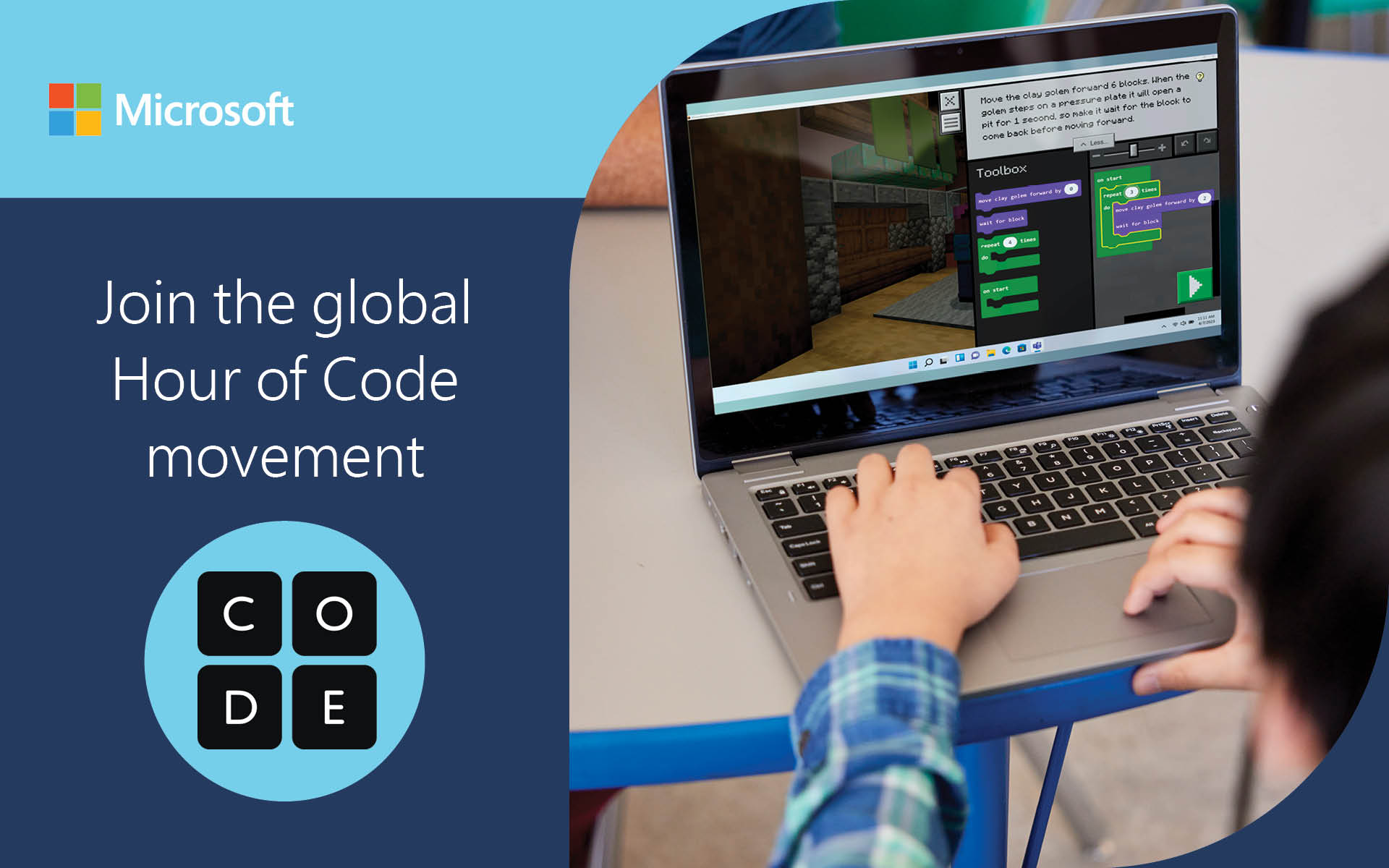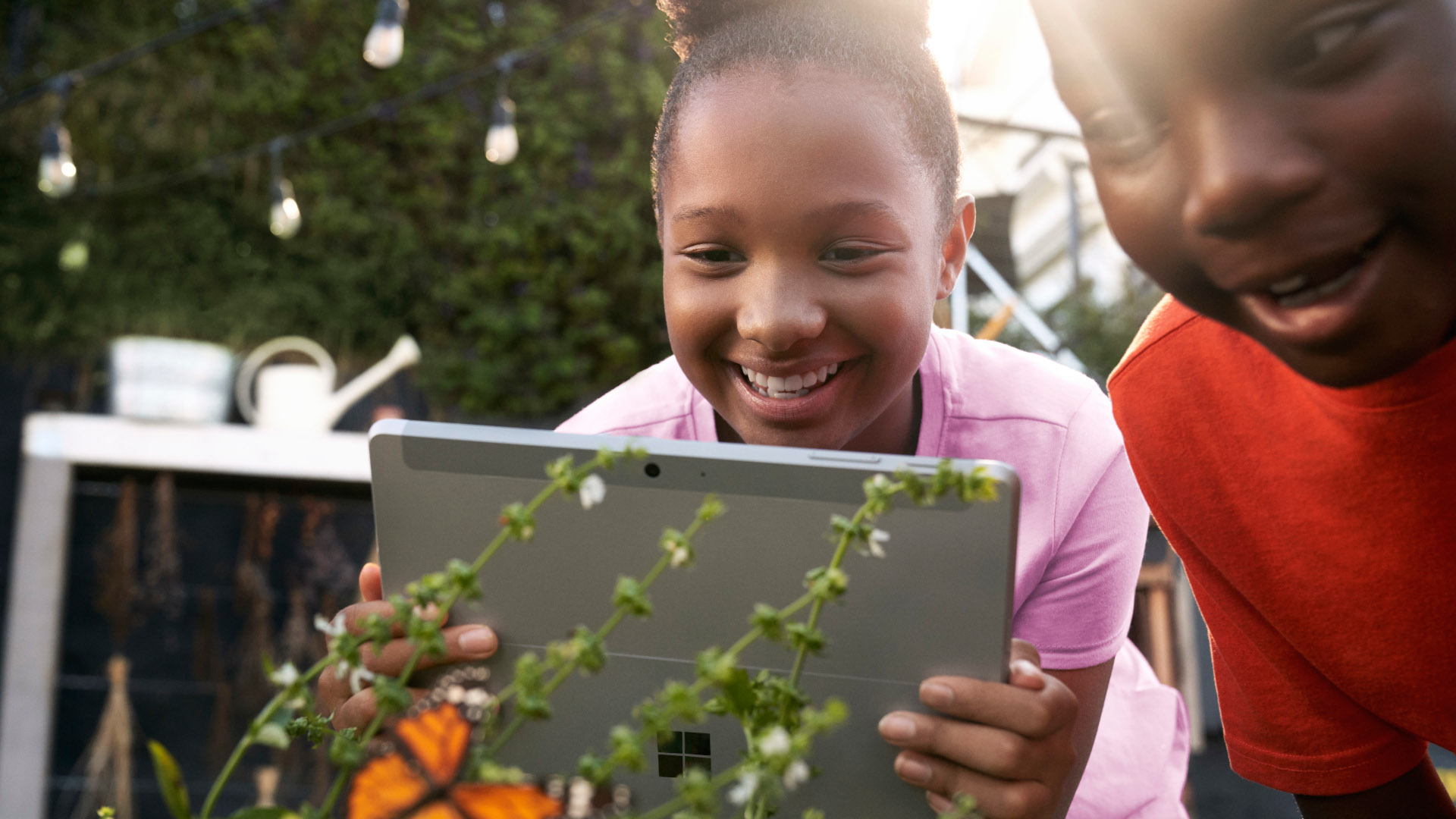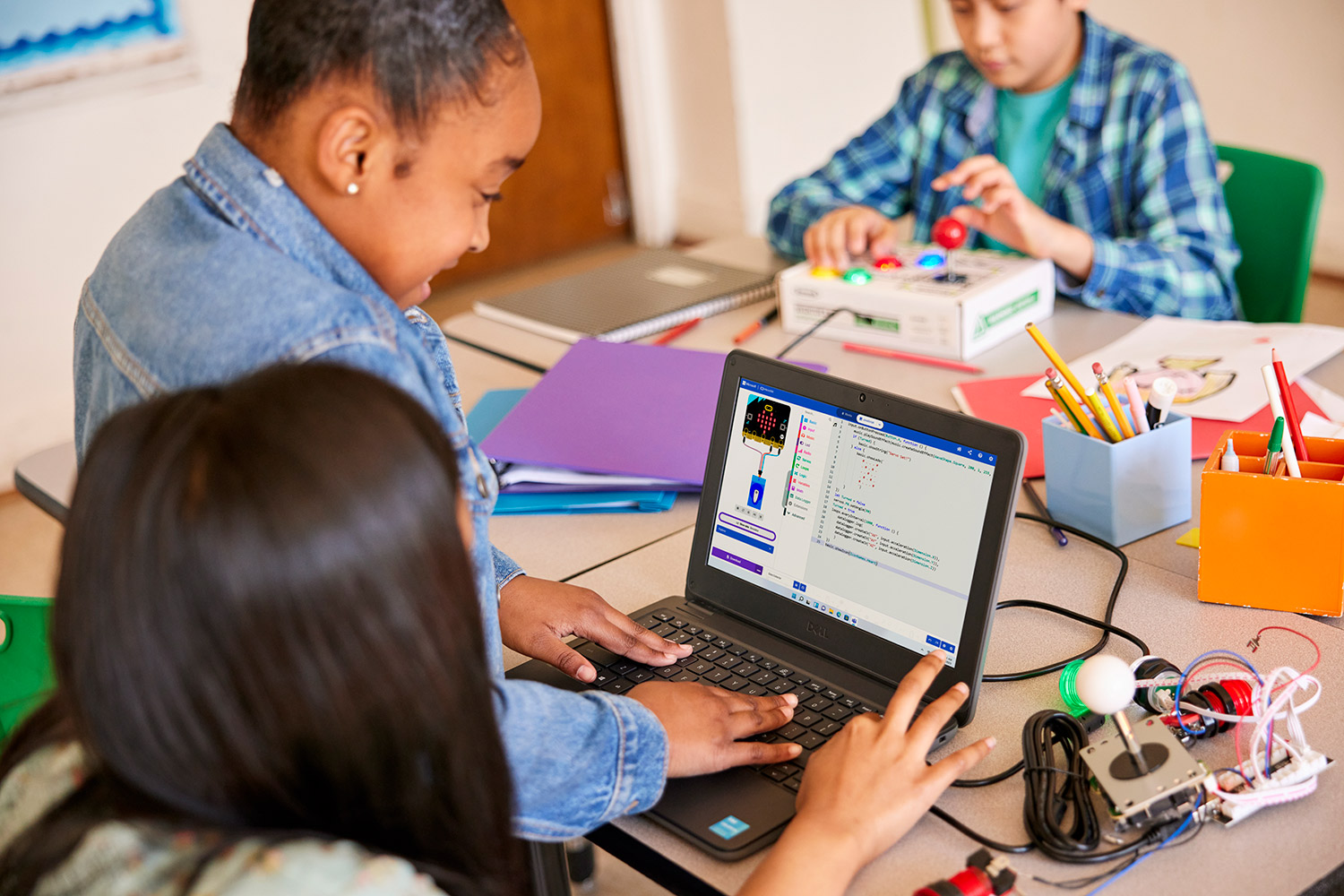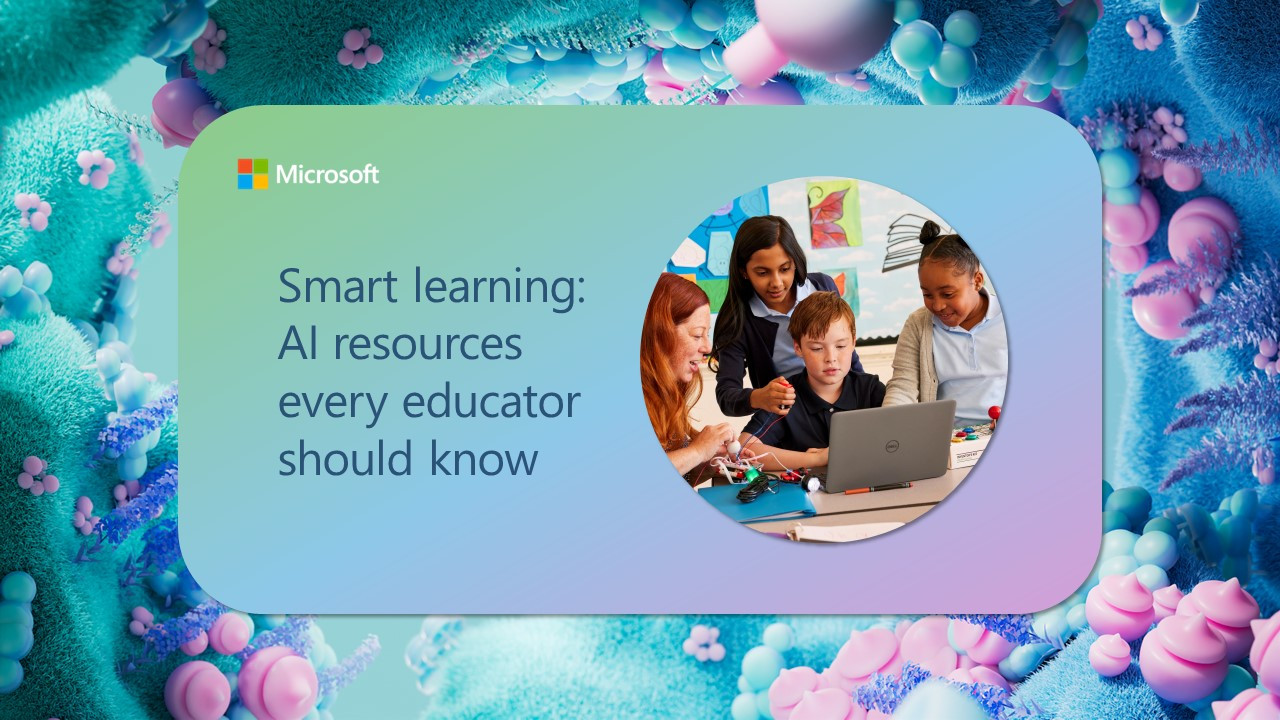From December 4–10, 2023, schools around the world will join the Hour of Code movement as part of Computer Science Education Week (CSEdWeek). With just one hour of coding—whether during CSEdWeek or anytime throughout the year—anyone can learn the basics of coding. And this year’s Hour of Code may be the biggest yet, thanks to a new AI-focused tutorial from Minecraft Education called Minecraft Hour of Code: Generation AI.
A one-hour, grassroots introduction to computer science (CS), Hour of Code uses engaging, kid-friendly tutorials and fun activities for learners of all skill levels. The brainchild of Code.org, this hugely popular computer science learning campaign is supported by over 400 partners and 200,000 educators worldwide. It’s a dynamic movement where nearly two million students have learned how to code in over 45 languages from over 180 countries. According to an Hour of Code Impact Study, there were significant changes noted in students' attitudes towards—and self-efficacy with—computer science after engaging in just one Hour of Code activity.
Since 2013, Microsoft and Code.org have partnered to expand Hour of Code and other CS education programs worldwide. There have been more than 250 million sessions of Minecraft Hour of Code, and we are excited to build on this momentum with the new tutorial.
Learn the basics of coding and responsible AI with new Minecraft Hour of Code
Venture through time to build helpful AI-powered inventions in the new computer science tutorial Minecraft Hour of Code: Generation AI. Use problem solving, creativity, and computational thinking to correct coding problems, solve fun puzzles, and use Microsoft responsible AI principles. With coding in MakeCode blocks or Python, Minecraft Hour of Code allows anyone ages 7 and up to learn the basics of computer science and how to build a better AI for all.
All students deserve opportunities to explore AI technology to understand its implications, access career pathways, and be empowered to safely and confidently navigate an AI-powered world. With proper policies and pedagogy in place, AI can help inspire students to develop their creativity, acquire new skills, and gain more agency in their unique learning pathways. With Minecraft Hour of Code: Generation AI, students will learn how AI is a part of the computer science ecosystem and how it is connected to coding, learning to code, and understanding responsible AI.
Minecraft Hour of Code: Generation AI is the perfect starting point for learning to code! The tutorial is available for all users in the Minecraft Education in-game library and as a free demo lesson. Access free resources for educators including a facilitation guide, walk-through video, and online training. This year, bring coding into your classroom and empower all your students to explore the amazing potential of AI!
Here’s how you can get involved in this year’s Hour of Code:
- Do the new Minecraft Hour of Code at aka.ms/hourofcode
- Register to join Drop Everything & Code, a fun community event hosted by Minecraft Education on December 6. Have your students do the Hour of Code lesson alongside a guest presenter and other classrooms tuned in around the world.
- Register for the Careers in Coding event on December 7, an engaging event in honor of Computer Science Education Week, featuring robotics technologist Kamak Ebadi from NASA’s Jet Propulsion Lab. His story promises to ignite the STEM dreams of every student and aspiring space enthusiasts. He will also discuss the power of coding in shaping future careers and share about NASA's Artemis missions.
- Register for a free webinar on November 16: Transform Computer Science Teaching & Culture with Minecraft Education at aka.ms/cswebinar.
AI guidance for schools
Educators need the right resources to empower their students to be computer science proficient, stay safe online with cybersecurity, and explore the potential of AI and coding. To address the urgent need for school systems to develop safe, effective, and responsible use of AI, Microsoft became a founding supporter of TeachAI and is proud to have contributed to the development of their new AI Guidance for Schools Toolkit.
Written by a group of co-authors from Code.org, the Consortium for School Networking (CoSN), Digital Promise, the European EdTech Alliance, and Policy Analysis for California Education (PACE), the toolkit presents an overview of the issues involved in AI in schools, seven principles to consider when developing AI guidance for education systems, real-world guidance examples, sample language, and resources for staff, parents, and students. Check out this practical resource and see how the AI Guidance for Schools Toolkit can help your school use AI responsibly.
AI-focused professional learning
To help you level up your skills and build AI literacy, Microsoft offers free training on Microsoft Learn. Boost your confidence and explore the potential of AI in education:
- AI for education: Resources and learning opportunities
- Skill up with the latest in AI, Microsoft 365, Windows, and security in education
- Empower educators to explore the potential of AI
- Enhance teaching and learning with Bing Chat
Dive deeper with Minecraft for computer science
With comprehensive curriculum in cybersecurity, AI, and coding, Minecraft Education empowers educators to bring computer science into the classroom with new lessons aligned to Cyber.org and CSTA standards. Go beyond Hour of Code and explore ways to build coding skills, career pathways, and digital citizenship!
Opportunities such as Hour of Code offer exposure to computer science, with engaging activities that provide a critical first step to engage more students in computer science subjects and practices, including AI. Explore Minecraft Hour of Code: Generation AI and the rich resources and tools available in Microsoft Education to make this year’s Hour of Code the spark that kindles computer science and AI learning in your classroom!
Editor’s note: This blog was originally published on November 14, 2023, and was updated on November 15, 2023, to include the following: To simplify the user experience and make Copilot more accessible to everyone, Bing Chat and Bing Chat Enterprise will now simply become Microsoft Copilot. For more information, visit https://aka.ms/BingIgnite




